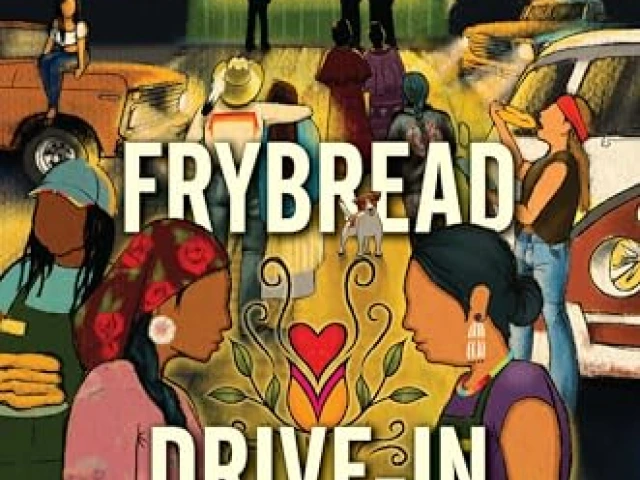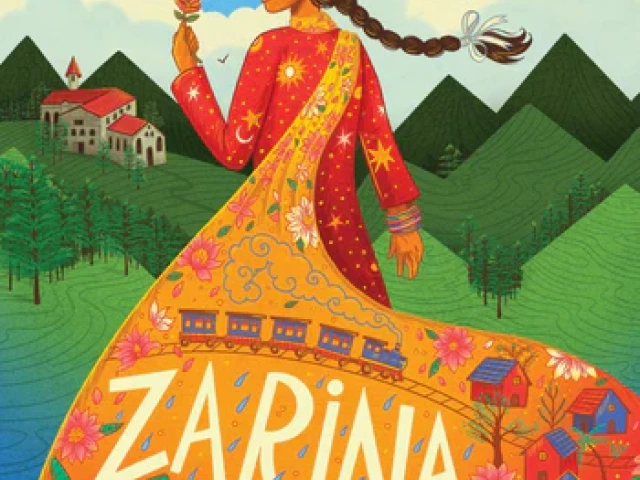Interview with Xavier Garza, Part 3
This is the third of a four part interview with author and illustrator Xavier Garza, 2005 América’s Award Honor Book winner. This interview was conducted electronically by Janine Schall.
Janine: All of your picture books are English/Spanish bilingual. What made you decide to write bilingual books?
Xavier: I am a firm believer in the advantages that come from being able to speak more that one language. While I agree that everyone should learn English, I see no reason to give up the tongue of your ancestors. I disagree with those who spout an English only point of view. I find it silly that they would seek to portray an individual's ability to be bilingual as being something bad. They forget that America isn't composed of just one culture; she is a varied and diverse nation that is made up of many, many different tongues, traditions and ideas. She is forever changing, never staying constant for too long.
Janine: It’s lovely to hear such a strong defense of bilingualism -- even here in the Valley I sometimes hear teachers denigrating Spanish. I imagine that growing up in Rio Grande City it would be difficult not to be bilingual, but was that something that your family and/or schools supported? I noticed that you don’t do your own translations for your books. Why is that?
Xavier: I can communicate be it speaking or writing, but don’t really have a grasp of the commas and accents and such. I do have some input into it, namely asking that words that are more commonly used in the Valley be used. My Spanish is more of a Tex-Mex Spanish such as using the word, ‘carro’ instead of ‘coche’ when talking about a car. I grew up learning Spanish from my dad and grandparents. Spanish was my first language as a child. Prior to entering public school, I was introduced to English by my mom, comic books and Sesame Street.
Janine: It seems to me that your books are grounded in Hispanic themes and traditions. They are popular with the children and teachers I’ve worked with in the RGV, who are mostly Hispanic. Is there an audience for your books outside of Hispanic readers? Lately I’ve been reading a lot about multicultural literature and the publishing industry. There seems to be a perception that books with “minority” characters aren’t going to sell well, which is one reason so few get published.
Xavier: For the most part my books have been very well received. Lucha Libre: The Man in the Silver Mask is probably my most popular book that has had the most crossover appeal. It is the one book done by me that is carried by almost all the Barnes and Noble stores. The booming Hispanic popularity in the U.S. has made book publishers take notice. We are an up and coming market, and they know it. In twenty years this misconception about books that have minority characters not selling will be proven wrong. They used to say that minorities didn’t read, and that is beginning to be disproven today. I see nothing but good things for Hispanics in literature.
The video clips below show excerpts from Christina Quesada-Mayne's read aloud of Lucha Libre: The Man in the Silver Mask. She is reading to 2nd and 3rd graders from Ynes B. Escobar Elementary in the Roma Independent School District, Texas. Our thanks to Christina Quesada-Mayne and Gracia Garcia for the videos. (Administrator note: The audio in the first set of clips on the read aloud has a buzz. The second set that includes student responses is clearer.)
How do students respond to Xavier's books? Below are video clips of 2nd and 3rd graders from Ynes B. Escobar Elementary in Roma, Texas sharing their drawings and art after listening to Lucha Libre: The Man in the Silver Mask and Juan and the Chupacabras/Juan y el chupacabras.
Next week Xavier will discuss his illustrations and upcoming work. Janine will also share more student responses to his books.
Journey through Worlds of Words during our open reading hours: Monday-Friday, 9 a.m. to 5 p.m. and Saturday, 9 a.m. to 1 p.m. To view our complete offerings of WOW Currents, please visit archival stream.




I agree that it is important to keep both languages. I am a very strong advocate for being bilingual. I think that we should encourage our students to use their native language and not forget about it. Our language is part of our culture and our roots, it is who we are.
It's interesting to know how students make connections with what is being read to them and their illustrations as well, but I wonder, if they had not seen the illustrations in Garza's book, would they have drawn something similar to the one in the book. I think that would have been an interesting activity because it would also involve using their prior knowledge to make connections with the text and create something.
Nataly, in my expereince, I have seen the students take it a step forward and use their metal images to draw their understanding. I personally believe that if the illustrations not there and the proper facilitation of the stroy read, the student can illustrate from their prior expriences.
Growing up in the valley, I wish that books were in English and Spanish. I wish that the dual language program existed when I was growing up. I did not learn Spanish because the opportunity was not there in school. That needs to change because the world is changing and becoming more culturally diverse every day.
I think that by having books in bilingual is a great opportunity for our students, because they are being exposed to both languages.They also provide our students to read in the language they feel most comfortable with. I really enjoyed the responses that the students at Y.B. Escobar created. It seems that the students enjoyed the books very much and were very motivated in which they created good responses.
I find it so hard to believe that most students who are labled bilingual are not true bilinguals. I have a bilingual class and when I see that they struggle with the reading I use spanish words that might help them relate to the topic but I think I just make it worse. Its like Xavier says in his interview , he grew up with a TEX-MEX language and I think that makes it so difficult because they are neither strong in proper spanish or english.
I had never been exposed to bilingual books until I was working for my bachelor degree. Mrs. L. Ybarra informed us about authors who wrote bilingual books. I come from a Spanish background but I learned English translating pages in English to Spanish. I think that helped me a lot to learn my second language. I read to my students in both languages, but they feel more comfortable while I am reading the Spanish section. They have picked up Engllish vocabulary as well. Sometimes I read chapter books in English and translate them as I go along to Spanish. Both languages are very important.
It is very important for people to support the bilingual education. Jobs everywhere need individuals to be bilingual, this doesnt necessarily mean it has to be English and Spanish. Being bilingual can be any other language combination. In the valley since English and Spanish are dominant we need to be supportive and not down look on this education.
I really enjoyed watching the students respond to the book. It was good to see and hear their gasps and laughs. This showed they could connect to it in some way or knew what was being read.
I have a master in bilingual education and I know that there is a great need for more hispanic children books. bilingual education is not only about "Latinos" but about all the diffrent cultures in the U.S.A. that is why all type of literature is important. Children need to make conections and Xavier Garza is giving them the chance to integrate the whole family because almost everybody knows about "El Santo". This create a link between school and home.
I love the fact that the books are both in English and Spanish. It is important for children to see books in both languages. Many times children only speak English and tend to speak very little Spanish. I think it is very important to speak both.
Like Ann, I also wish I had been exposed to English/Spanish books when I was growing up. As a child, I would have related to these type of books and enjoyed them very much. Thanks to writers like you, Mr. Garza, children are now very fortunate to have these culturally rich literature in their classrooms.
I agree that being bilingual is a blessing and feel saddened when people from the Hispanic culture look down at the use of Spanish. I personally did not have bilingual education in elementary. It was all English instruction and speaking Spanish was against the rules. I remember thinking why my native language was considered wrong. I'm glad that now our children are exposed to your books and can feel a sense of pride in speaking two languages and reading something they can relate to.
Some of the english language learners helped the other students understand what words in spanish went with the words in english. It was neat to see my ELLs so speaking so comfortably. The day after the read aloud, one of my students brougut in a mask and shared his story of purchasing it as well as his knowledge of the lucha libre.
I read Luch Libre to my bilingual class in English first and my students really enjoyed it. In the afternoon, I read it again in Spanish and they loved it. It was really great to be able to read to them in both languages.
I feel very excited to know that authors like Xavier are representing the voices of the valley and of our ancestors through the popular legends like the lechuzas and the chupacabras. The bilingual books he has written are excellent especially for our LEP population who enjoy reading about their own culture and reinforce their English and Spanish consequently.
I consider extremely important for students to maintain their bilingualism especially if they live here in the Rio Grande Valley were both languages share, to some extent, the same degree of importance. I am a very strong advocate of bilingualism and I can only see it as a tool for a prosperous and marketable career.
I am a strong advocate of bilingualism. Growing up I did not have an opportunity to express myself in my first language, instead, I was encouraged to speak only English because "I was in America." I simply would not accept this, of course, I kept my beautiful Spanish language and added the English into my system. Living in the Rio Grande Valley, one would think that the Spanish language would be passed on, fact of the matter is that many people try to "erase" the Spanish language and not make it part of their lives, such a shame.
Mr. Garza, I have to thank you for helping our students connect to our culture with your book on Lucha Libre, I was very happy to see my hero in your book after so many years. Congratulations and keep up your good work!
I agree with Mr.Garza's views on bilingualism. It is really refreshing to hear someone being so honest about not giving up your "ancestors' tongue". I also am a firm believer in bilingual education, and I'm glad to have found one of many authors that also shares my point of view.
I agree with the comments about bilingual education. Growing up, I spoke a little Spanish, but once I started school I stopped. I think it would have been beneficial to have more bilingual activities, books, and integration in school. Garza's books are great since more students are familiar with the tale and can make personal connections with the text.
I could not agree more with Xavier Garza on the aspect of being bilingual. I believe that those of us that have the ability to speak both languages should embrace it. His books are very appealing to the students and the fact that they are bilingual makes it even better.
Last semester I was visiting a classroom from the Pharr San Juan , Alamo School district working on my masters research project, and mentioned to the teacher about one project I had in mind. I planned to video record the reactions towards multicultural literature, from her bilingual second grade students . As I gathered as many books as I could, I checked out multicultural books from the library. I was anxious about how would students react towards the books , since they had no experience in reading multicultural books. Yet the results from that project satisfied my expectations, the majority of female students where fighting for books “El Chupacabras”, “Lucha Libre” from Xavier Garza” . The boys run to get the books by Xavier Garza as well; they were very interested for frightening stories. I believe students need to be exposed to books that are appealing, they will show a great interest to read.
I grew up in a place where people only spoke English and didn't really have any exposure to other languages until high school. It would have been great to have bilingual books in that particular context--although I wouldn't have been able to read the other language, I think it would have given me a curiosity about other languages. It's important to have access to bilingual literature not just for the students who are learning English as an additional language, but for English-speaking students as well!